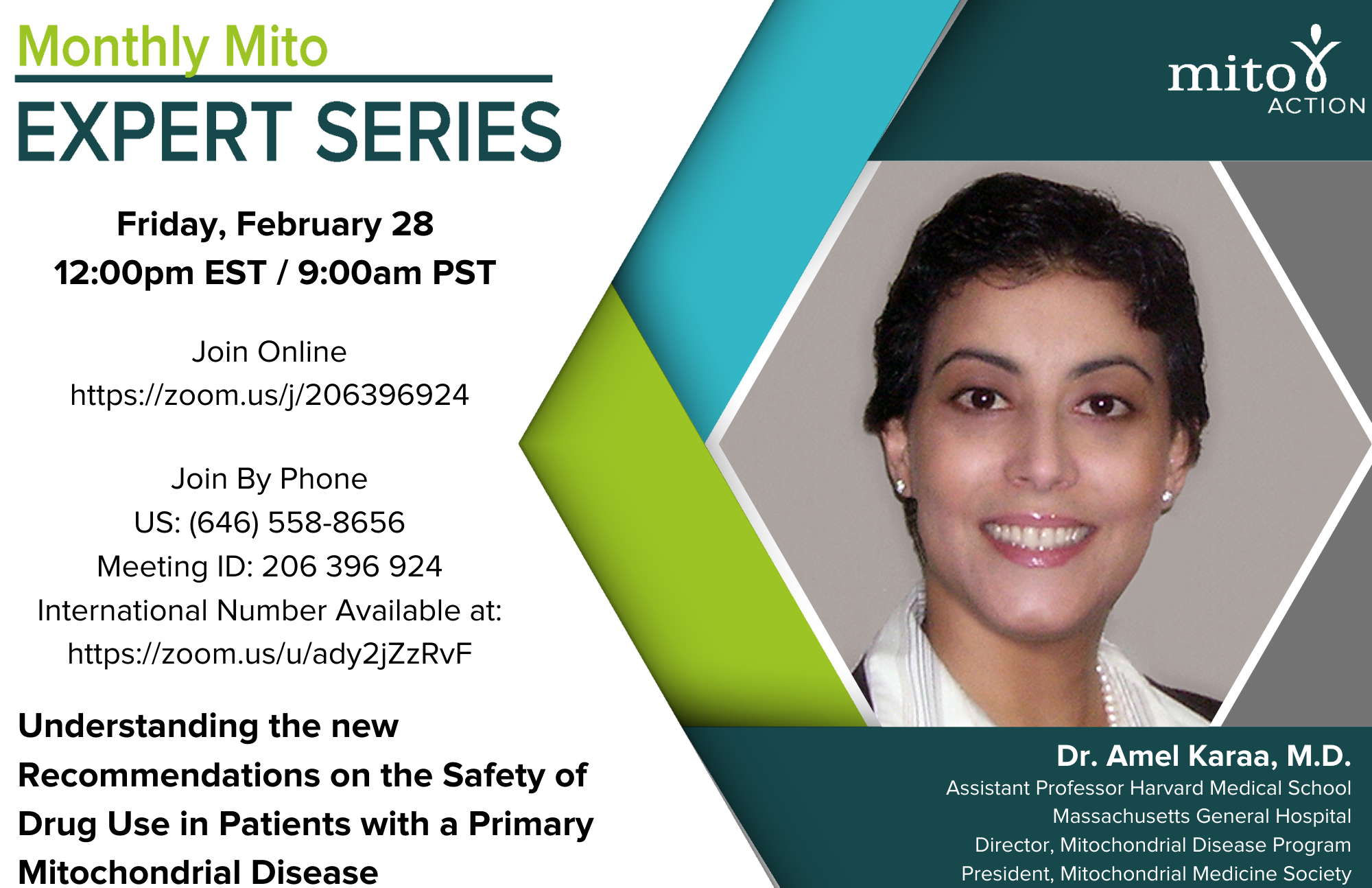“Understanding the New Recommendations on the Safety of Drug Use in Patients with a Primary Mitochondrial Disease”
Clinical guidance is often sought when prescribing drugs for patients with primary mitochondrialRelated to the mitochondria. disease. Theoretical considerations concerning drug safety in patients with mitochondrial disease may lead to unnecessary withholding of a drug in a situation of clinical need. The aim of this new study was to develop consensus on safe medication use in patients with a primary mitochondrial disease.
The study and updated Safety of Drug Use list can be viewed here.

About the Speaker
Dr. Amel Karaa is a board-certified internist and clinical geneticist, director of the mitochondrial disease programs at the Massachusetts General Hospital in Boston (The Mito Clinic). She received an international baccalaureate in biology and chemistry (magna cum laude) from the Franzoesiches Gymnasium in Berlin and a medical degree (summa cum laude) from the Universite of Medicine et Pharmacy de Tunis in Tunisia. She has also completed her internal medicine residency and clinical genetic and metabolism fellowship through Harvard-wide programs. She received the 2013 United Mitochondrial Disease Foundation (UMDF) Fellowship and is currently overseeing clinical care for pediatric and adult mitochondrial disease patients and conducting clinical research and clinical trials for mitochondrial disease. She was elected president of the Mitochondrial medicine Society in June of 2018 and sits on the scientific and medical board of the Mitochondrial Disease Action Committee (MitoAction) and the United Mitochondrial Disease Foundation (UMDF). Dr. Karaa is also a founder and a board member of newly launched Mitochondrial Care Network (MCN), a US-wide network developing centers of excellence for mitochondrial disease and a principal site investigator for the North American Mitochondrial Disease Consortium (NAMDC). She is committed to being an advocate for her mitochondrial disease patients and their families, to educate health care providers in recognizing and treating mitochondrial patients within the community and to be a catalyst for bringing a much-needed cure to this population of patients.










